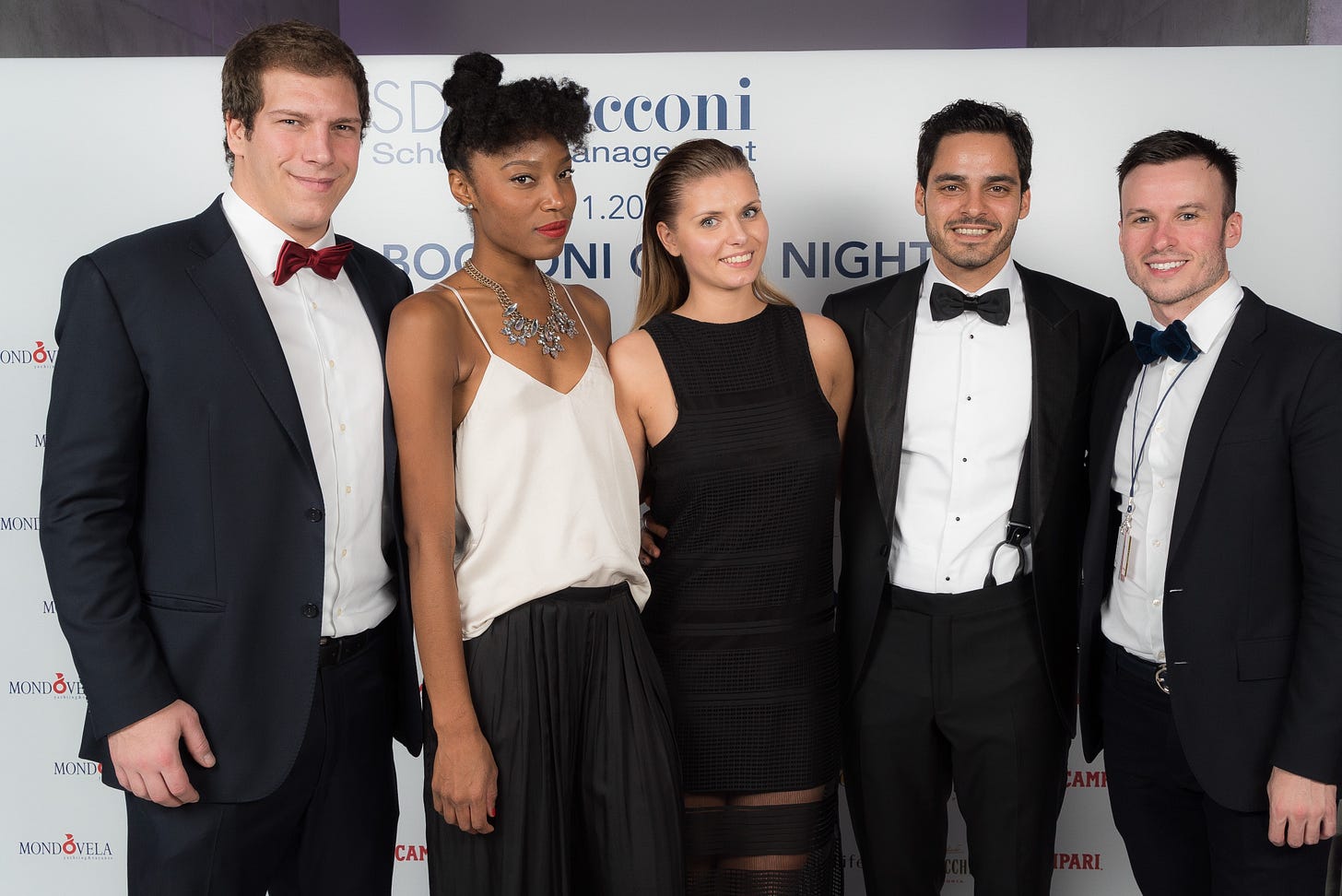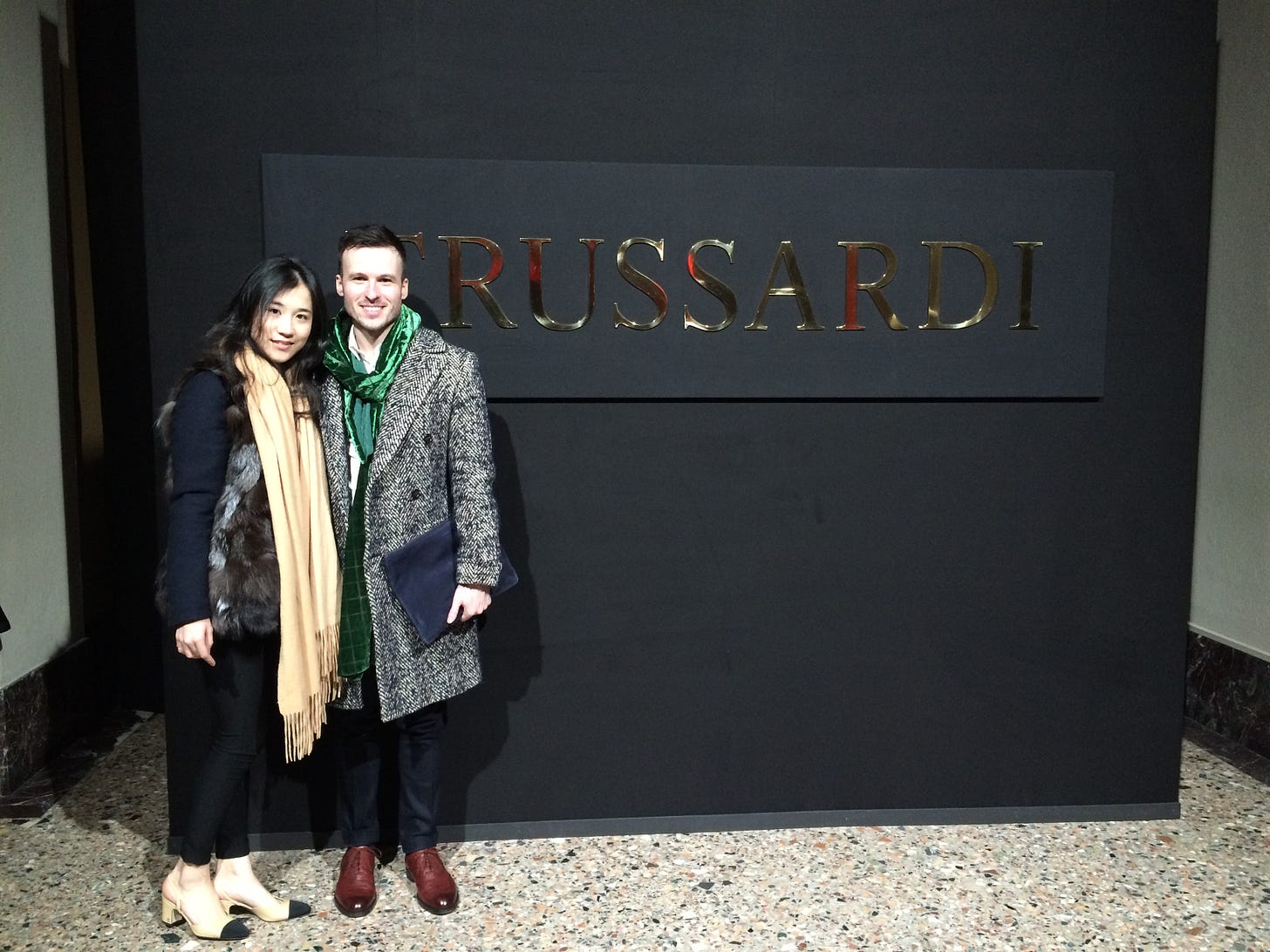Was my Master's degree worth it? It depends
It turns out, the value is mostly in the networking
Higher education, like so many aspects of society, is undergoing a reckoning. Student loan debt saddles 46 million Americans, and nearly 40% of that is from students pursuing graduate degrees. Overall student loan debt tripled between 2008 and 2023.
The average MBA program debt is about $51,000, while law school debt averages about $132,000. Mine is about $75,000 last I checked. These figures are all too relatable among people my age, my friends, and anyone who has changed professional course in their life.
Nine years later—I started my program in September 2015—I have mixed feelings about the “worth-it-ness” of my MBA. I imagine others feel similarly about their degrees, about the return on their investment. I feel lucky that I am at least using my degree in my work, and was able to pivot my career in the way I intended.
Perhaps it’s too soon to judge the ROI. Perhaps most borrowers need at least twenty years post-program to decide. Or, what’s more likely true is that every case is different and contextual. It depends on one’s pre-Masters situation and how drastically one hopes to change their career path by going back to school. In my case it felt like a hard reset, and I knew it wouldn’t be easy.
Here’s why I think it was worthwhile.
I attended SDA Bocconi in Milan and lived abroad for over a year, focusing full time on learning, collaborating with classmates, and enjoying foreign immersion. The program was conducted in English, but living in Italy required plenty of assimilation and adjustment.
I developed a connection to Milan that endures. I still have a handful of friends there and enjoy seeing them when I can get back. Part of me will always be fond of that time, those experiences, and those memories.
I’ve made great use of Bocconi’s vibrant alumni network, including now working alongside fellow alumni of the school and regularly attending happy hours organized by alumni chapters in San Francisco and Los Angeles.
I believe I was a top pick for my current role because I had the Bocconi and Italy connection. Without that, it may have been a very different process and set of interview hurdles.
My understanding of Italian culture has helped immensely in working with Italian colleagues as well as translating their vision and goals to American and International markets.
While it wasn’t cheap, my European MBA program was about half the cost of an American MBA program, which is one reason I chose it. Had I attended a school in the US, my debt balance would likely be even bigger.
Here’s why I think it wasn’t worthwhile.
I use the same skills and talents in my current role that I had before the program, and don’t feel as if I learned or mastered any major new capabilities while there. Truthfully, instead of stretching my attention span and comfort zone into new realms and topics, I glazed over the courses I found challenging or impertinent to where I wanted to go—luxury marketing. Classes like supply chain management and operational efficiency felt incredibly dry.
Schools are businesses like any other, and as such expend greater resources attracting new “customers” over assisting existing or recently matriculated students with connections, placements, interviews, etc. Once the new class of students arrived about three quarters of the way through our program, I and many of my cohort felt abandoned by the career service arm of the school.
The program I chose, though it is not the norm, was compressed into a shorter time frame. Typical MBAs require two full years of study, internships, and time off. My program was fifteen months with nearly eight hours of instruction each day. In hindsight I might have been able to give proper attention to the topics I found challenging had I not felt so rushed.
My post-grad earnings have hardly matched what was advertised to prospective students. I’m only now earning the kind of salary that matches my education and experience.
Sometimes when reflecting, I feel that the whole experience was like adult summer camp. Everyone was new to each other, and everyone made fast friends. Weekends were filled with quick trips and adventures around the continent. Social gatherings were both programmed by the school and conducted more intimately among friend groups. Romances flourished. I believe a few are now married with children.
Mostly in our late 20s and early 30s, we behaved like teenagers, studying and partying. But it was an expensive vacation. I certainly worked harder and more diligently in undergrad than in business school.
While some were surely there under honest and straightforward motives, many like myself were there to escape and to have fun. At the time I packed my bags and said goodbye to my life in Florida, I was dealing with the loss of my mom. I wanted to throw away my past and start over, no matter the cost. I was desperate.
Why do we go back to school after completing years of education and some amount of time as professionals? Everyone who chooses to do so has his or her reasons, but I believe now that it’s just one way people seek out more in their lives. They’re seeking expansion, enlightenment, and change, and they’re betting on an investment in their own ability to change.
Today I imagine it’s much easier to self teach and self learn, but the certificate (and stories I’ll have forever) still commands attention and conveys authority. I wanted a fresh start from my Master’s degree, and feel that I did eventually find it, I just wish it hadn’t been so expensive.
Nevertheless, I wouldn’t trade my Italian adventure for anything.








Learning the culture was an important part of the experience ~ 15 mos vs 24 mos but leisurely lunches meant something more than what’s obvious (it’s not about saving $25grand it’s about the “other” European fashion center & how they do business)